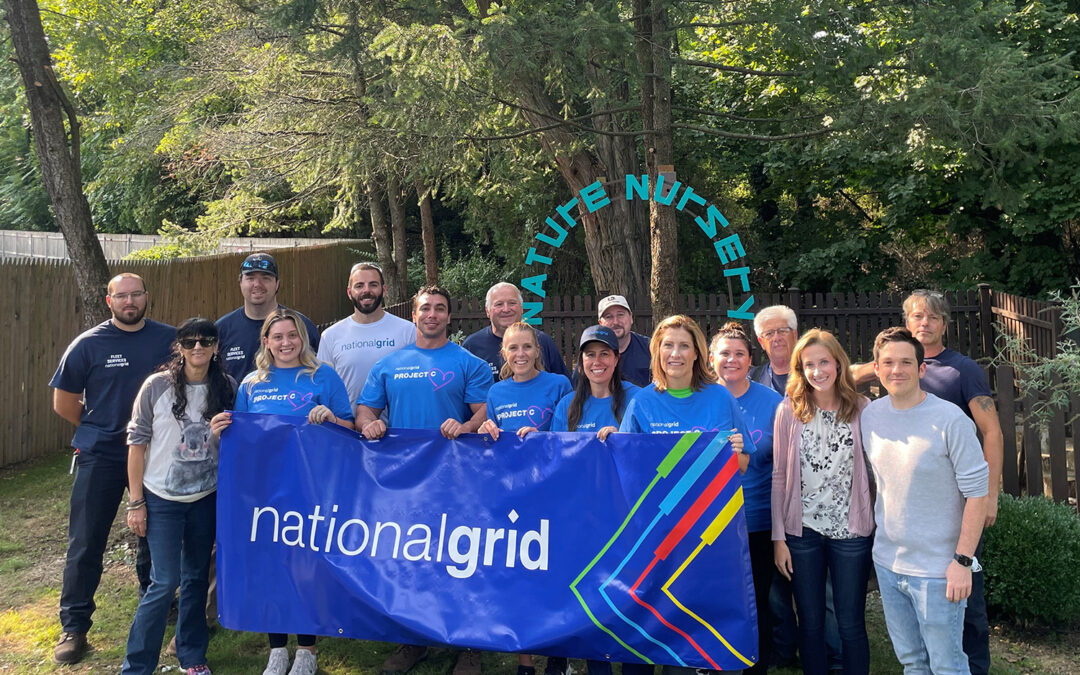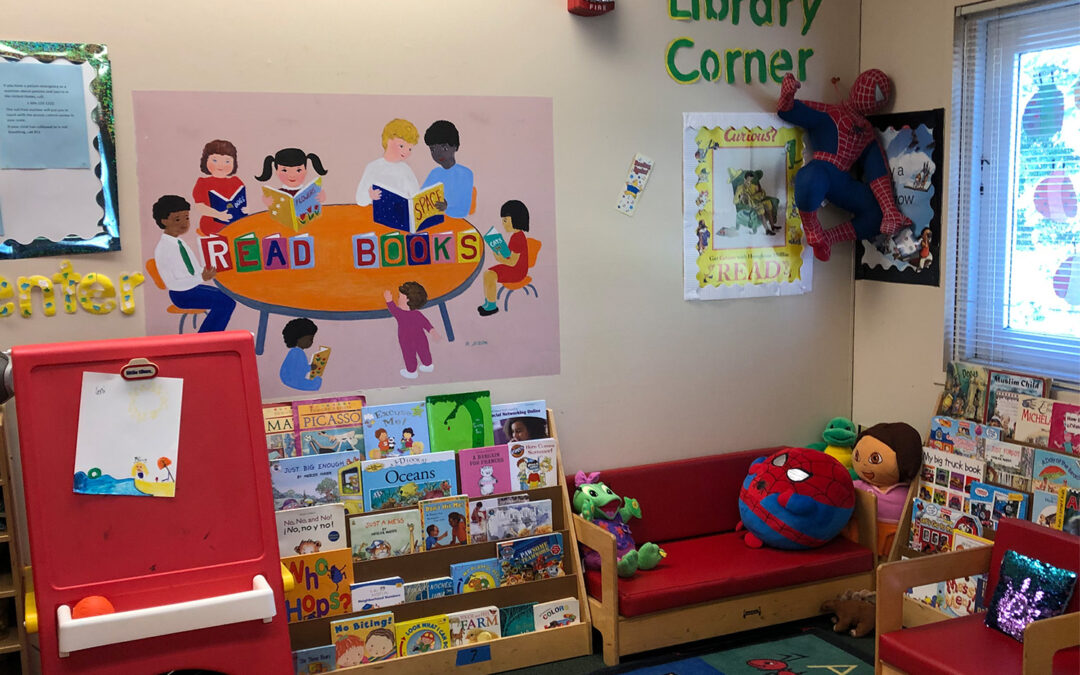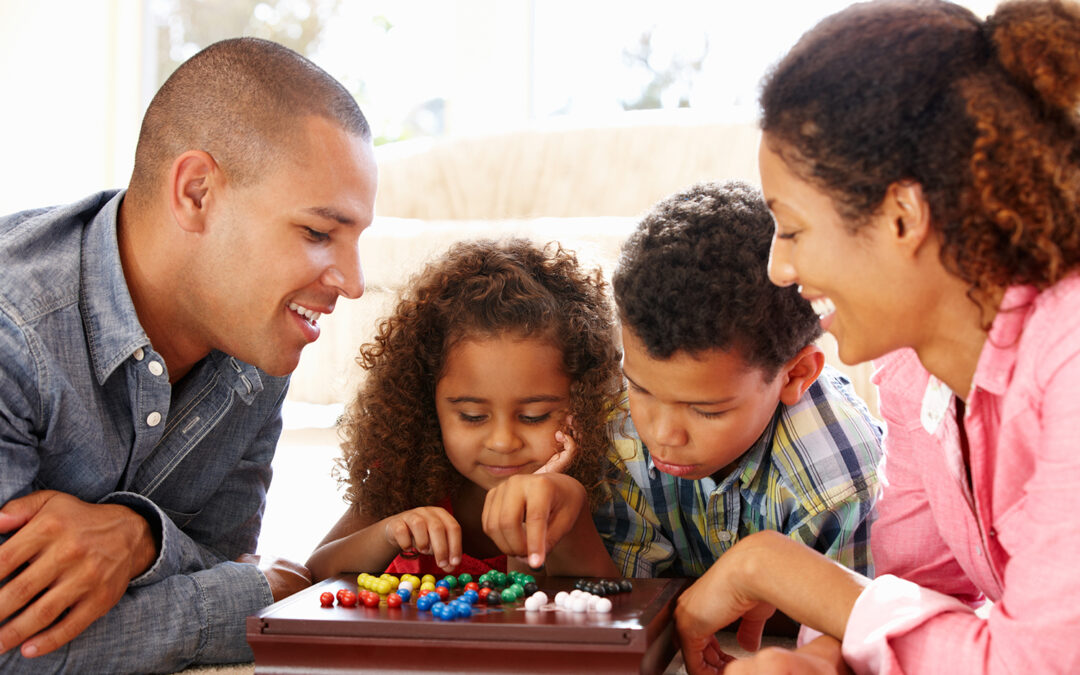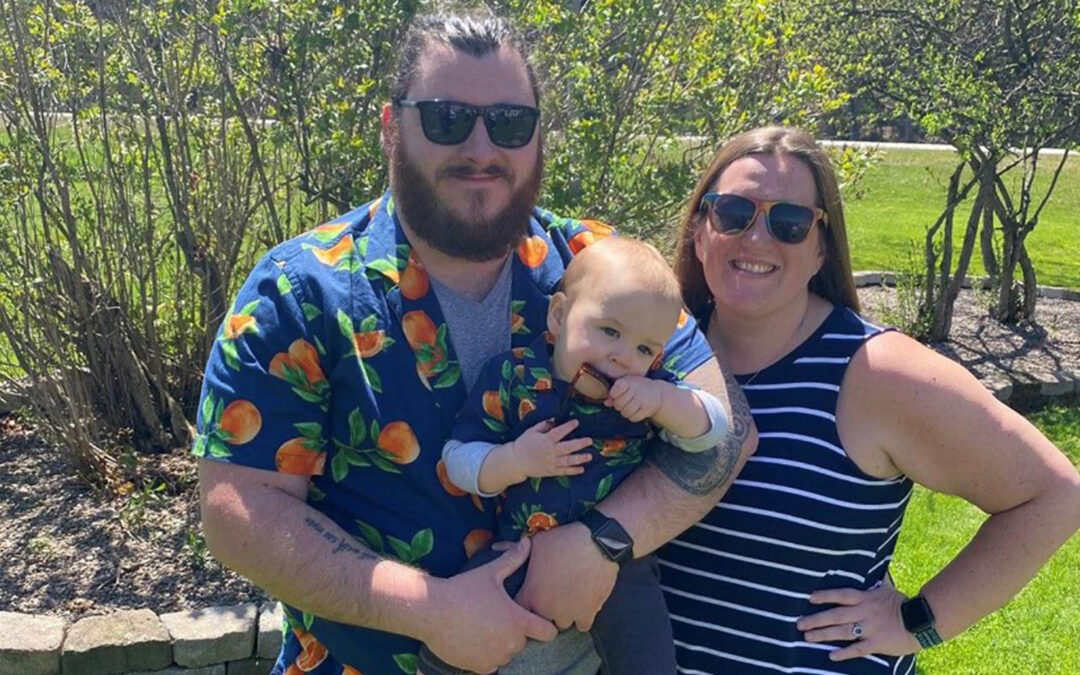
by North Shore Child & Family Guidance Center | Oct 6, 2022 | In The Media, Press Releases
Volunteers spruce up Nature Nursery at children’s mental health organization
Roslyn Heights, NY, September 27, 2022 — On September 16, 2022, North Shore Child & Family Guidance Center (the Guidance Center) was thrilled to welcome 11 employees from National Grid to its Marks Family Right from the Start 0-3+ Center as part of the utility’s volunteer day of service, called Project C.
The volunteers spent the entire day planting, painting, repairing and whole-heartedly doing whatever needed to be done to spruce up the Nature Nursery at the Right from the Start Center, which had been left largely unattended during the pandemic.

“We are so grateful to all the National Grid volunteers for working so hard and with such great spirits to beautify our Nature Nursery and surrounding areas,” said Dr. Sue Cohen, Director of the Right from the Start Center, where the Guidance Center serves its youngest clients and their families. “The Nancy Marks Nature Nursery continues to provide our young children and their parents with an opportunity to enjoy their natural environment using exploratory, hands-on stations and activities, such as musical instruments, water, paints and graduated steps. Having a creative outdoor space to use during therapy and group sessions allows our therapists to engage children in a different way. The youngsters who have experienced this area love all that is has to offer and look forward to regularly returning.”

National Grid’s Alexandra Paoli, who was in charge of the project at the Guidance Center site, worked side by side with her mother, Michele Paoli, who has worked at the utility for 25 years. “Thousands of National Grid employees volunteer on this ‘Day of Service,’ which takes place at locations all across Long Island, upstate New York and New York City,” said Alexandra, a recent graduate of Penn State University and Associate Analyst, Community Customer Engagement. “My mother knew about the great work done at the Guidance Center, so when she suggested it be one of the sites of our statewide volunteer initiative, it was a natural choice.”

Therese Sullivan, National Grid’s Director of Operations Enablement, has participated in both Project C Day of Service events. “I was glad to volunteer for the Guidance Center because mental health is so important, especially helping children at an early age,” she said. “It is a great resource for families, and I’m proud that our company supports these efforts.”
If your company would like to discuss opportunities to volunteer at the Guidance Center or support our mission in other ways, contact Lauren McGowan at LMcGowan@northshorechildguidance.org or call her at (516) 626-1971, ext. 320.
Photo: A dedicated group of National Grid employees (pictured here with North Shore Child & Family Guidance Center staff) did an amazing job volunteering at the nonprofit’s Nature Nursery.
About North Shore Child & Family Guidance Center:
As the preeminent not-for-profit children’s mental health agency on Long Island, North Shore Child & Family Guidance Center is dedicated to restoring and strengthening the emotional well-being of children (from birth – age 24) and their families. Our highly trained staff of psychiatrists, psychologists, social workers, vocational rehabilitation counselors and other mental health professionals lead the way in diagnosis, treatment, prevention, training, parent education, research and advocacy. The Guidance Center helps children and families address issues such as depression and anxiety; developmental delays; bullying; teen pregnancy; sexual abuse; teen drug and alcohol abuse; and family crises stemming from illness, death, trauma and divorce. For nearly 70 years, the Guidance Center has been a place of hope and healing, providing innovative and compassionate treatment to all who enter our doors, regardless of their ability to pay. For more information about the Guidance Center, visit www.northshorechildguidance.org or call (516) 626-1971.
About National Grid: National Grid (NYSE: NGG) is an electricity, natural gas, and clean energy delivery company serving more than 20 million people through our networks in New York and Massachusetts. National Grid is focused on building a path to a more affordable, reliable clean energy future through our fossil-free vision. National Grid is transforming our electricity and natural gas networks with smarter, cleaner, and more resilient energy solutions to meet the goal of reducing greenhouse gas emissions.
For more information, please visit our website, follow us on Twitter, watch us on YouTube, like us on Facebook and find our photos on Instagram

by North Shore Child & Family Guidance Center | Oct 4, 2022 | In The Media, Press Releases
Roslyn Heights, NY, October 4, 2022 — Family court hearings are often contentious, and they are certainly no place for young ears. Luckily, with the Children’s Center at Nassau County Family Court, parents and guardians have a safe place to bring children from infants to 12-year-olds while they are conducting court business.
North Shore Child & Family Guidance Center, which runs this important program, is holding a fundraiser to support the Children’s Center at Nassau County Court on Thursday, October 27, 2022. The event will be held at Tesoro’s Ristorante, 967 Old Country Road, Westbury, from 5:30 to 8:30 p.m., and will feature cocktails, music and a buffet dinner.
“The Children’s Center at Nassau County Family Court provides a valuable service because it allows children to be insulated from the stress involved in the horror of family court litigation,” said John M. Zenir, Esq., co-chair of the fundraiser. “Just imagine a six-year-old sitting in a public waiting room outside of a courtroom not knowing what is happening. What fear and dread that child must feel! Instead, he or she can go to the Children’s Center and play with toys, read a book and have a snack while being attended to by qualified professionals.”
According to co-chair Allison Cacace, children can be traumatized if they hear their loved ones arguing in court. “The Children’s Center at Nassau County Family Court provides a safe, nurturing environment for children while their parents or other caretakers sort out their legal affairs,” said Cacace, Director of Tobay Day School and owner of Casino One Limousines. “It is extremely important that we raise awareness and funds for this invaluable service that makes a positive impact on children and is also greatly beneficial to those who can’t afford to pay for childcare during court sessions.”
“The mission of the Women’s Bar includes promoting the fair and equal administration of justice,” said Cherice P. Vanderhall Wilson, President of the Nassau County Women’s Bar Association, which is co-hosting the benefit. “The Children’s Center eliminates childcare as a barrier to justice and provides a resource for those who need it while they seek assistance from one the County’s most important courts.”
Dr. Nellie Taylor-Walthrust, Director of the Guidance Center’s Leeds Place, said, “The Children’s Center not only provides childcare, but it’s also an early learning environment, and each child leaves with a book to take home. We are so grateful to John, Allison and the Nassau County Women’s Bar
Association for their dedication and support. We hope that all who care about children will join us on October 27th!”
To purchase tickets or sponsorships, email mespichan@northshorechildguidance.org, visit www.northshorechildguidance.org or call 516-626-1971, ext. 309.
Photo: The Children’s Center provides a safe, nurturing environment for children while their parents are in court.
About Us:
As the preeminent not-for-profit children’s mental health agency on Long Island, North Shore Child & Family Guidance Center is dedicated to restoring and strengthening the emotional well-being of children (from birth – age 24) and their families. Our highly trained staff of psychiatrists, psychologists, social workers, vocational rehabilitation counselors and other mental health professionals lead the way in diagnosis, treatment, prevention, training, parent education, research and advocacy. The Guidance Center helps children and families address issues such as depression and anxiety; developmental delays; bullying; teen pregnancy; sexual abuse; teen drug and alcohol abuse; and family crises stemming from illness, death, trauma and divorce. For nearly 70 years, the Guidance Center has been a place of hope and healing, providing innovative and compassionate treatment to all who enter our doors, regardless of their ability to pay. For more information about the Guidance Center, visit www.northshorechildguidance.org or call (516) 626-1971.

by North Shore Child & Family Guidance Center | Oct 4, 2022 | Blog
It was a trendy topic a few years ago, but it’s still a great idea!
The topic? Forest bathing, a method of self-care that goes far beyond its literal meaning of taking a bath in a forest. Forest bathing focuses on becoming one with your environment and the nature that is around you.
Here’s how Time Magazine put it:
“We all know how good being in nature can make us feel. We have known it for centuries. The sounds of the forest, the scent of the trees, the sunlight playing through the leaves, the fresh, clean air — these things give us a sense of comfort. They ease our stress and worry, help us to relax and to think more clearly. Being in nature can restore our mood, give us back our energy and vitality, refresh and rejuvenate us.”
Whether you call it forest bathing, hiking or simply a walk in the woods, spending time in nature is a great idea for the mental health and well-being of you and your kids alike. You don’t need to go far to immerse yourself in nature – find a local park or hiking trail in or around your community to get started. Plan wisely and be sure to pack comfortable shoes, sun protection and water. Being outdoors has many benefits, such as clearing your mind, reducing stress and reducing your blood pressure. It’s also a great excuse for your family to bond and to get off their electronics.
As useful as forest bathing is for personal and familial purposes, it is also deeply beneficial as a mental health intervention. North Shore Child & Family Guidance Center offers a program to at-risk youth which utilizes the theories that underlie forest bathing to help adolescents cope with stressors in their lives in our Wilderness Respite Program, which provides participants with a gateway to the mastery of social skills and youth empowerment through hikes and other outdoor activities.
As one of the parents of a Wilderness Program participant put it, “Therapeutically speaking, this program teaches my son the tools to handle his negative combative thinking through hiking in various land and weather conditions. During each hike my son participates in, I have observed positive changes in his attitude and behavior which last for several days. His thinking appears clearer, his mood swings lessen. This program has definitely increased his self-esteem. The benefits of this program are endless.”
To learn more about all the Guidance Center’s programs, contact us at 516-626-1971. Our trained clinicians can help you navigate any struggles that you may be experiencing.

by North Shore Child & Family Guidance Center | Sep 27, 2022 | Blog
By Guest Blogger Colleen Stewart
Keeping your children and teens busy, especially indoors, can be quite the challenge if they’re always on the go. However, you can still make sure that learning indoors is as educational – and fun – as it would be outdoors, at school or anywhere else.
DIY Science Experiments
DIY experiments are a great way to keep curious young minds entertained for hours as they create and experiment with scientific equations and material. Furthermore, it could help them become even better at math and science because they’ll be putting theories into practice as the actual results unfold before their very eyes.
Board Games are an Excellent Option
Encouraging kids both young and old to participate in board games is a winner. After all, there are just so many varieties of board games to choose from that you’re sure to find one that will suit your child’s preference for the day. Moreover, most board games are designed to encourage their critical thinking skills and problem-solving abilities too.
Encourage Them to Try Their Hand at Cooking or Baking
Of course, this is one of those indoor activities that will require parental supervision. Nonetheless, it is an excellent opportunity to bond with your child while letting their creativity run loose. Furthermore, if your child battles with reading and comprehension, reading recipes out loud can help them identify words and understand sentence structure better, as well as help to improve their math skills when they learn how to measure ingredients and convert metrics.
Coloring
Coloring is also an excellent pastime, and it’s suitable for children of all ages. What’s more, it can improve your child’s fine motor skills, help them focus better and increase their attention span if they need help in this area.
Storytelling
Most kids relish the opportunity to hear a story from their parents, especially if it means undivided one-on-one attention with just you and them. But you can also step it up a notch by encouraging them to act out roles in a story to enhance their communication and language skills.
Keeping Them Entertained When You’re Busy
Suppose you work from home and need time without interruption from your kids. In this case, you could allow them to catch up on a bit of screen time, especially if it is educational. This way, you’ll be able to get your work done while they learn to keep themselves busy. Moreover, if you limit screen time to only a specific portion of the day, they’ll probably look forward to it more.
So, if you happen to be stuck indoors due to adverse weather conditions, be sure to take advantage of activities like these. That way, your kids won’t dread being cooped up inside, and neither will you!
Board games – https://bilingualkidspot.com/2019/06/18/fun-board-games-for-kids/
Recipes – https://www.bbcgoodfood.com/howto/guide/top-5-easy-bakes-kids
Coloring – https://www.learning4kids.net/2015/06/22/benefits-of-colouring-in-activities/
Story – https://www.splashlearn.com/blog/amazing-short-stories-for-kids-that-teach-beautiful-lessons/
Work from home – https://www.zenbusiness.com/blog/4-tips-for-working-from-home-with-young-kids/
Screen time – https://www.commonsensemedia.org/lists/educational-tv-shows-for-kids
Bio: Colleen Stewart loves giving her two kids a healthy example to live by. Her passion for community and wellness inspired her and her husband to team up with their neighbors and create a playgroup that allows the adults and their kids to squeeze in a workout a few times a week. She created Playdate Fitness to help inspire other mamas and papas to make their well-being a priority, and set a healthy foundation for their little ones in the process.

by North Shore Child & Family Guidance Center | Sep 21, 2022 | Blog
Guidance Center client shares her journey from hurt to healing through Diane Goldberg Maternal Depression Program
This is the transcript of a speech given by Samantha Sutfin-Gray at the Guidance Center’s 2022 Sunset Soirée fundraiser, September 8, 2022.
My name is Samantha Sutfin-Gray and in June of 2021, I became a first-time mom, to a beautiful baby boy. Without the services from the Diane Goldberg Maternal Depression Program at North Shore Child and Family Guidance Center and the love and support from my husband and family, my son, Samuel, would not have a mother.
As a trained clinical social worker, I knew about Postpartum Depression and Anxiety. I knew the signs and symptoms; I knew what to look out for and I thought that my knowledge and education would protect me. I was wrong.
After having a high-risk pregnancy and a traumatic birth experience, I thought I had paid my dues and that I wouldn’t be one of the 1 in 7 women who experience Post-Partum Depression and Post-Partum Anxiety within the first year after giving birth. But I was wrong.
My symptoms started in just hours after giving birth. I was in a perpetual state of terror. I was convinced that I shouldn’t take my eyes off of my son or that he would stop breathing. It got to the point that I wouldn’t allow myself to sleep. I knew then that I needed help but when I asked for it, I was just told to take melatonin. With that sage advice, I thought that I was in this alone.
I was hopeful that once we left the hospital that my fears and symptoms would reduce, thinking naively that the hospital environment was to blame for everything. Through everything, I wanted to maintain hope that I could manage everything I was feeling on my own and being the perfect Mom that I had always envisioned being.
I muddled through for a few weeks trying to convince myself everything was ok. But things continued to get significantly worse. I knew the signs, intrusive thoughts, racing thoughts, inability to sleep despite crippling exhaustion, the feeling of inadequacy, thinking that my family would be better off without me, nightmares, and phantom cries. I thought I could beat it on my own. That if I was just a better mother that the symptoms would go away.
I obsessed over every part of Sam’s schedule, his sleeping, his feeding, how much I was pumping, even how much he was pooping, and any perceived deficiency would send me spiraling. I was never good enough because I could never control everything. From the outside perspective, I appeared to be the happy new Mom but internally, my mind was attacking me, sending me constant messages that I was never good enough. I was convinced that I was failing as a parent and that I was abusing my son because he cried, or because he didn’t finish a bottle or because he hadn’t pooped in a while and very quickly my thoughts turned to self-harm, to planning a way to kill myself or remove myself from my family because I was convinced, I was the problem.
I was trapped in the bottom of a hole that I couldn’t find a way out of.

It wasn’t until a Friday afternoon, about 6 weeks after I had given birth, where I spent the better part of the day strategizing how I could kill myself and make it look like an accident, that I came to the realization that I needed to get help.
I turned to North Shore Child and Family Guidance Center. From the beginning, they let me know that I mattered. That what I was going through was normal but that they understood that it didn’t feel normal to me. I was connected to a therapist, a psychiatrist, and a support group within days of making an initial call. I was welcomed into a community that understood what it was like to be a mom and was able to connect with other moms who had felt the same.
My therapist helped me understand that it was ok not to be Wonder Woman every day. She helped me to accept that even though I know the process, the diagnosis and definitions, I needed to ask for help and to manage my stress. She helped me to understand what I already knew that the hormones surging through my body were tricking my brain into thinking things that were quantifiably not true. And most importantly, she helped me remember that my family would not be better off if I wasn’t there.
I count myself as lucky. Because of my position in society, my understanding of mental health and the resources at my fingertips, I was able to find a program like The Guidance Center Not many women are in the same position as me. 1 in 7 women experience Postpartum Depression and Anxiety. PPD doesn’t discriminate by age, race, or class. It can happen to any parent and the effects can be devastating.
Postpartum Depression tears a person apart, it steals away the part of your soul that makes you who you are. During my darkest days, I loved my family unconditionally, but I couldn’t express it and I couldn’t see the devastation it was creating in my house. Postpartum Depression is an illness one person can have that the whole family suffers from. The Guidance Center’s Diane Goldberg Maternal Depression Program understands this. They created a treatment plan that addressed the functioning of my whole family and were able to help me repair the holes that my depression caused.
I can’t even imagine where I would be or how far my suffering would have taken me, if I hadn’t sought treatment on that Friday afternoon in July 2021, I probably wouldn’t have the pleasure to be standing here talking to you today. The Guidance Center helped me to see that there was a light at the end of a very dark tunnel, and they were with me every step of the way. For that, my family and I are eternally grateful. Every day, I get to watch my son grow and explore and learn new things and I don’t obsess about his poop nearly as much.
Thank you.









